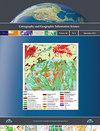An exploratory assessment of the effectiveness of geomasking methods on privacy protection and analytical accuracy for individual-level geospatial data
IF 2.4
3区 地球科学
Q1 GEOGRAPHY
Cartography and Geographic Information Science
Pub Date : 2022-09-03
DOI:10.1080/15230406.2022.2056510
引用次数: 7
Abstract
ABSTRACT The widespread use of personal geospatial data raises serious geoprivacy concerns for sharing these data, which may limit the reproducibility of research findings. One widely used method for securely sharing confidential geospatial information is applying geomasking techniques before sharing. Geomasking may reduce the usability of the data. Thus, researchers need to strike a balance between privacy protection and analytical accuracy. Although many geomasking methods have been proposed, there is no systematic evaluation of these methods or guidance on which method to use and how to apply it properly. To address this gap, we evaluate eight geomasking methods with simulated geospatial data with various spatial patterns and investigate their performance on privacy protection and analytical accuracy. We propose not only a set of preliminary guidelines for applying the proper geomasking methods when using different spatial analysis methods but also an evaluation framework for assessing geomasking methods for other spatial analysis methods. The findings will help researchers to properly apply geomasking for sensitive geospatial data and thus promote data sharing and interdisciplinary collaboration while protecting personal geoprivacy.地理测绘方法在个人层面地理空间数据隐私保护和分析准确性方面的有效性探索性评估
摘要个人地理空间数据的广泛使用引发了共享这些数据的严重地理隐私问题,这可能会限制研究结果的可重复性。一种广泛使用的安全共享机密地理空间信息的方法是在共享之前应用地理空间屏蔽技术。Geomasking可能会降低数据的可用性。因此,研究人员需要在隐私保护和分析准确性之间取得平衡。尽管已经提出了许多风水方法,但对这些方法没有系统的评估,也没有关于使用哪种方法以及如何正确应用的指导。为了解决这一差距,我们用具有各种空间模式的模拟地理空间数据评估了八种地理测绘方法,并研究了它们在隐私保护和分析准确性方面的性能。我们不仅提出了一套初步指南,用于在使用不同的空间分析方法时应用适当的地理建模方法,还提出了一个评估框架,用于评估其他空间分析方法的地质建模方法。这一发现将有助于研究人员正确地将地理建模应用于敏感的地理空间数据,从而在保护个人地理隐私的同时促进数据共享和跨学科合作。
本文章由计算机程序翻译,如有差异,请以英文原文为准。
求助全文
约1分钟内获得全文
求助全文
来源期刊
CiteScore
5.20
自引率
20.00%
发文量
23
期刊介绍:
Cartography and Geographic Information Science (CaGIS) is the official publication of the Cartography and Geographic Information Society (CaGIS), a member organization of the American Congress on Surveying and Mapping (ACSM). The Cartography and Geographic Information Society supports research, education, and practices that improve the understanding, creation, analysis, and use of maps and geographic information. The society serves as a forum for the exchange of original concepts, techniques, approaches, and experiences by those who design, implement, and use geospatial technologies through the publication of authoritative articles and international papers.

 求助内容:
求助内容: 应助结果提醒方式:
应助结果提醒方式:


